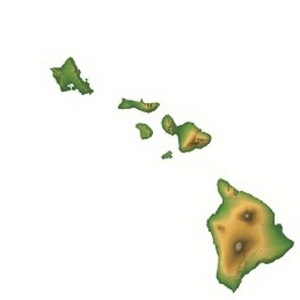Honolulu city council adopts resolution for biodiesel initiative

September 12, 2014
BY Pacific Biodiesel Technologies
On Sept. 10, the Honolulu City Council adopted a resolution requesting the development of a biodiesel initiative for the city’s existing mass transit diesel vehicles.
Introduced by Stanley Chang, Chair of the Committee on Public Works and Sustainability, resolution 14-169 passed through committee late last month for the full Council’s consideration. “I am excited to see that the Honolulu City Council has taken the right step in expanding biodiesel use within the City’s transportation services,” Chang said. “The passing of this resolution demonstrates the Council’s commitment to making Honolulu a more environmentally friendly city.”
Advertisement
The City and County of Honolulu have a commendable track record with biodiesel. Since 2004, the City has successfully integrated B20 biodiesel in a large segment of its municipal fleet, including waste collection trucks. In 2012, the city completed a pilot project with 20 of its fixed route buses. The adoption of resolution 14-169 will allow the Department of Transportation and the City to look to further the use of biodiesel in TheBus and TheHandi-Van fleets comprised of more than 650 vehicles.
Hawaii depends on imported fossil fuels, mostly oil, to sustain more than 90 percent of its energy requirements. While the State has made good strides in creating solar and wind renewable energy sources, the transportation sector lags woefully behind. The good news is that premium quality biodiesel, a renewable alternative to petroleum diesel, is being locally produced on Hawaii Island and distributed throughout the state.
Advertisement
Pacific Biodiesel, a pioneer in the biodiesel industry, manages the Big Island Biodiesel refinery in Keaau, Hawaii. With primary feedstocks of used cooking oil, grease trap waste and waste agricultural oils, this high-quality, locally produced renewable fuel offers both environmental and economic benefits. In light of the recent hurricanes that brushed the Hawaiian Islands, the need for locally produced biofuels was once again brought to mind.
With an in-state biodiesel production capacity of over 5.5 MMgy, the move to a biodiesel blend for Honolulu’s mass transit vehicles is an excellent opportunity to support community-based biofuel production and reduce the need for imported petroleum. It just makes sense.
Related Stories
The U.S. EPA on March 24 asked the U.S. District Court for the District of Columbia to dismiss a lawsuit filed by biofuel groups last year regarding the agency’s failure to meet the statutory deadline to promulgate 2026 RFS RVOs.
The USDA on March 25 announced it will release previously obligated funding under the Rural Energy for America Program To receive the funds, applicants will be required to remove “harmful DEIA and “far-left climate features” from project proposals.
2025 International Biomass Conference & Expo concludes as largest event in a decade and unparalleled industry insights
The 2025 International Biomass Conference & Expo, held March 18-20 in Atlanta Georgia, featured of insightful discussions, cutting-edge technology showcases, and unparalleled networking opportunities.
Nearly 1.52 billion RINs were generated under the RFS in February, down more than 25% when compared to the 2.04 billion that were generated during the same month of last year, according to data released by the U.S. EPA on March 20.
The U.S. EPA on March 20 published updated SRE data showing that four new SRE petitions have been filed under the RFS in the past month. According to the agency, 156 SRE petitions are currently pending.
Upcoming Events










